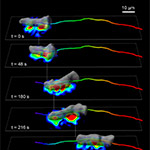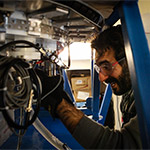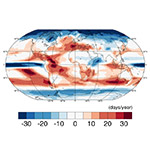Study Finds that Fast-Moving Cells in the Human Immune System Walk in a Stepwise Manner
A team of biologists and engineers at the University of California, San Diego has discovered that white blood cells, which repair damaged tissue as part of the body’s immune response, move to inflamed sites by walking in a stepwise manner.















